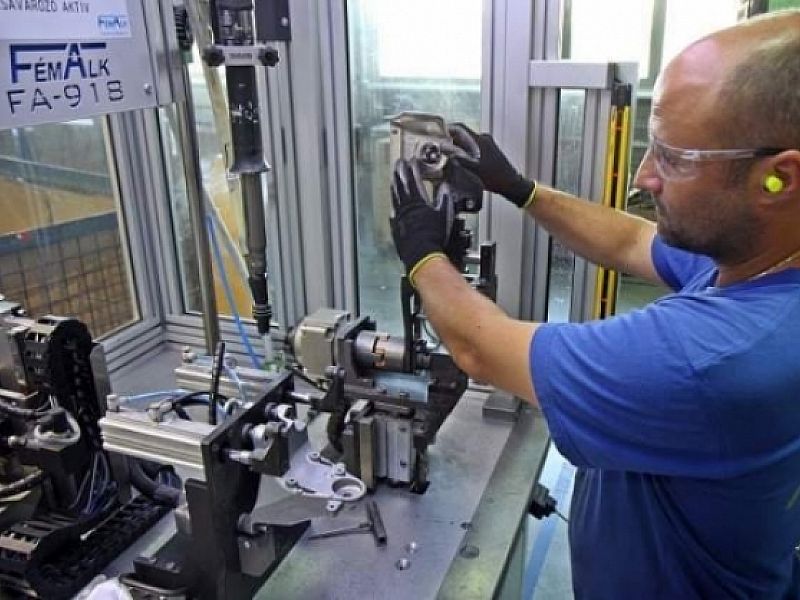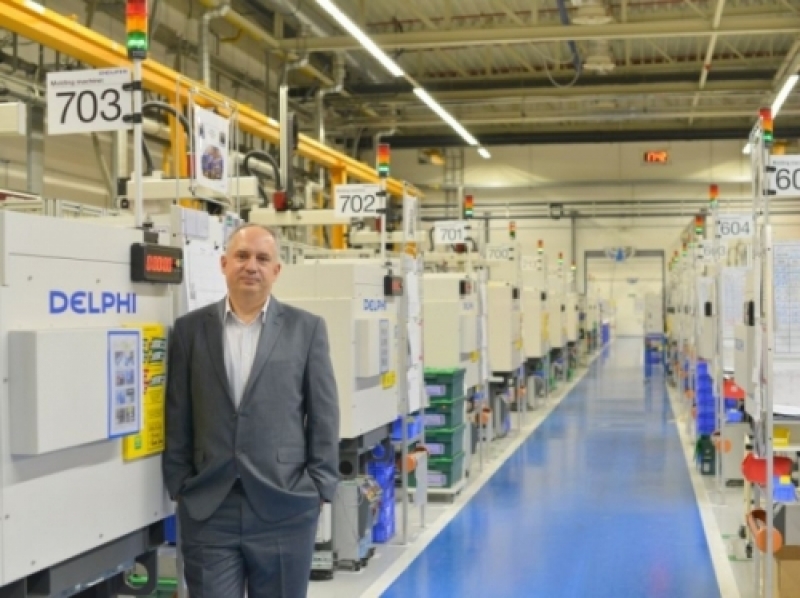Hungarian automotive industry: week 2 2017 edition

Although the new year has barely begun, we are already looking at investments that could potentially ramp up the Hungarian automotive sector. Let’s recap what the second week of 2017 had to offer in Hungary’s auto industry.
Manufacturers
Last week, several manufacturer reported on their 2016 sales in Hungary.
It seems Hungarians prefer locally made products: Audi sold 543 Győr-build cars in Hungary, while Mercedes-Benz sold 34.5 percent more cars in the country in 2016 than in the previous year.
Suppliers
“When I came here 12 years ago, the prospects of expansion and a revenue of €100 million were purely a vision – today, however, it is a reality, which we have in fact surpassed thanks to well-made management decisions and identifying and taking advantage of opportunities and meeting demands,” Balázs Sebestyén, the CEO of Delphi Tatabánya, told autopro.hu in an interview last week.
 |
| Balázs Sebestyén, CEO of Delphi Tatabánya |
Last week saw a change in management at Robert Bosch Elektronika Kft.: effective on January 1, Volker Schilling has been replaced by Wolfgang Stein as the Hatvan-based plant’s CFO. Volker Schilling had led the Hatvan-based Bosch plant since August 2011, and now will be leading the worldwide audit organisation of the Bosch group.
The Hungarian subsidiary of LG Electronics has also appointed a new CEO. Youngnam Roht has been replaced by Bumseop Lee as chief-executive at the consumer electronics manufacturer’s Hungarian arm.
Service providers
Last week, we interviewed Enre Spaller, the vice-president of the Hungarian Research, Development and Innovation Agency, who said Hungary’s local industry still has room for expansion beyond production, and the conditions for growth are given.
Péter Szijjártó, Hungary’s Minister of Foreign Affairs, is currently in Germany, where he is in talks with German companies engaged in the automotive, electronics and supplier industries on potential investments in Hungary. Should these investments materialise, they could create up to 8,000 jobs in Hungary.
 |
| Foreign minister Péter Szijjártó (right) in talks with German automotive, electronics companies on potential investments in Hungary |
Szijjártó previously said that they had managed to successfully secure three Hungarian investments, which will be announced shortly. Two of these will create over 1,000 jobs each, while the third is expected to open 1,000 new positions in Hungary in the automotive, electronics and supplier industries.
“Quality or quantity?” This is what we asked Sándor Szabó, the CEO of Exact Systems Hungary Kft., a company engaged in providing quality assurance services.
“If it has to do with customer requirements, we simply cannot ignore any aspect. This is one of the reasons why our group has experienced dynamic growth since the very beginning and for its significant successes in Hungary in such a short time,” he said.
Education
At Savaria University Centre, to be operating under the direction of Eötvös Lóránt University (ELTE) from 1 February 2017, there are several results of common thinking in terms of the region’s economic development: one is the launch of dual mechanical engineering course, while the other is the wages of educators invited back from abroad.
 |
| Dr. István Németh, Savaria University Centre |
The latter could set a new example in the country, as the educators, who or example came back from Gent or Brussels, now receive the double of their original salaries in higher education. Last week, we interviewed Dr. István Németh, the deputy-dean of Savaria University Centre, on the details of the institution’s new strategies and possibilities in mechanical engineer training.
For the first time in Hungary, a new diode and laser centre is being built near Pallas Athena Univerity’s Faculty of Mechanical Engineering and Automation (GAMF), Zoltán Weltsch, head of the university’s department of materials technology told our site. The construction of the laser centre is expected to begin this year.
TechTogether
Students from Pallas Athena University of Kecskemét have undertaken a unique project: they are developing and building a motorcycle. In an international competition, the team already secured a podium finish.
We sat down with designer Mátyás Siteri and team leader Attila Tímári, who said that the aluminium foam used by the team is 5.4 times lighter than standard aluminium. As a result, the frame and the swinging arm only weigh 7 and 3 kilograms, respectively.
 |
| Team from Kecskemét university designs and builds motorcycle |
Production line
Universal Robots has concluded a partnership agreement with a Hungarian company: Robot-X Hungary Kft. had previously recognized the potential of automation and cooperative robots and has now joined to the line Universal Robots distributors as a Hungarian retailer.
What is Industry 4.0? We pondered about this question with key players from the Hungarian automotive industry. Tamás Laufer, chairman of the ICT Association of Hungary, went as far as saying that those who do not join the digital revolution will permanently hurt their company’s future.
Trend
We are yet again one step closer to autonomous mobility: the testing of self-driving vehicles have commenced on Austrian public roads. We sat down with Dr. Csaba Nyalka attorney about the legal side of autonomous technologies.




















